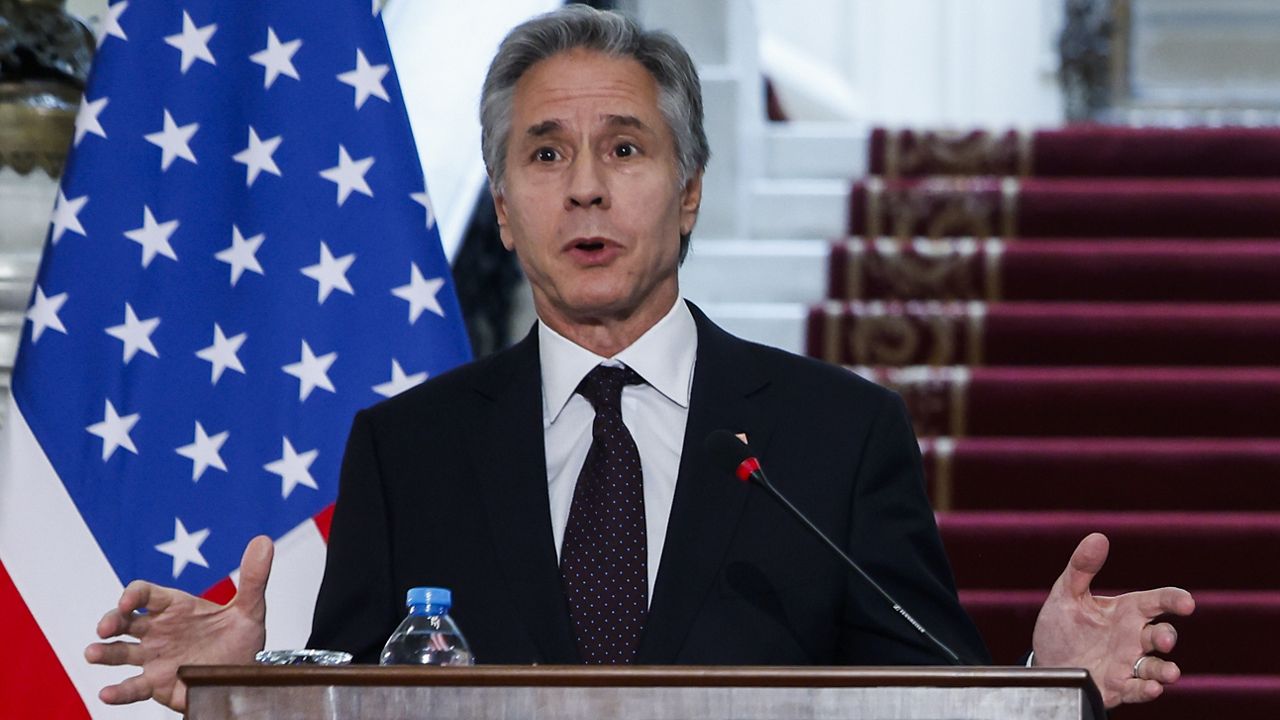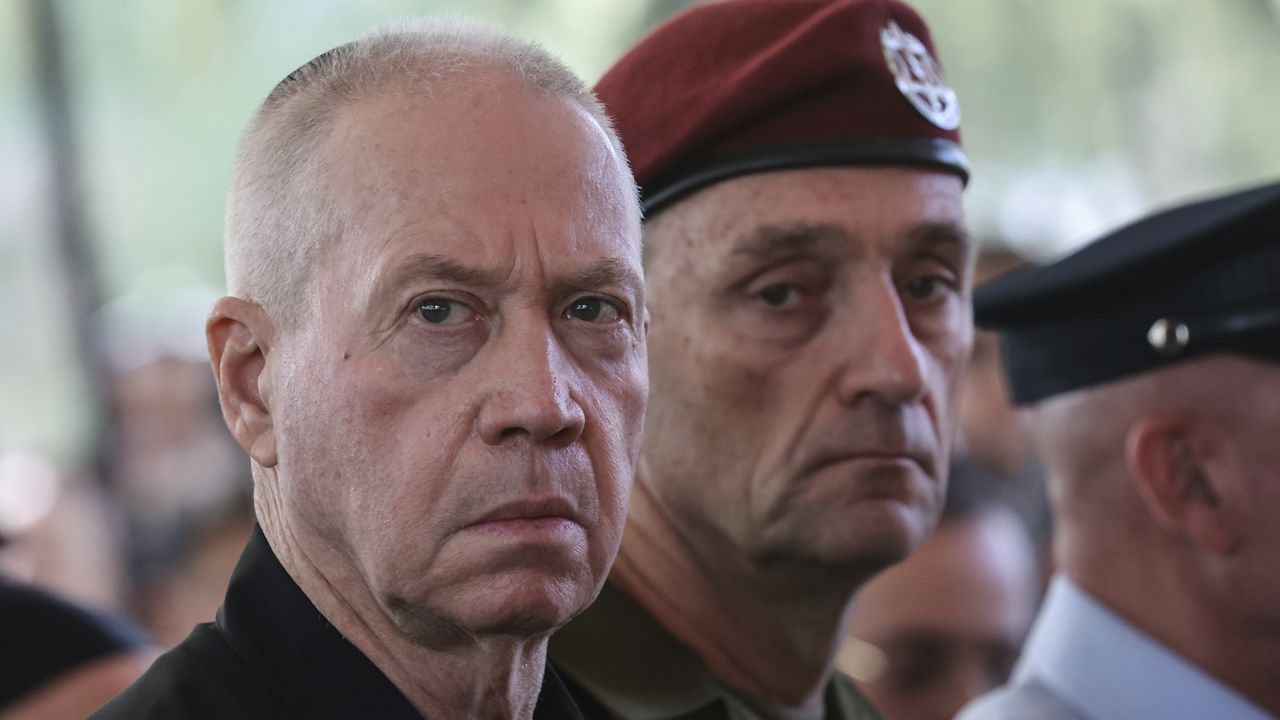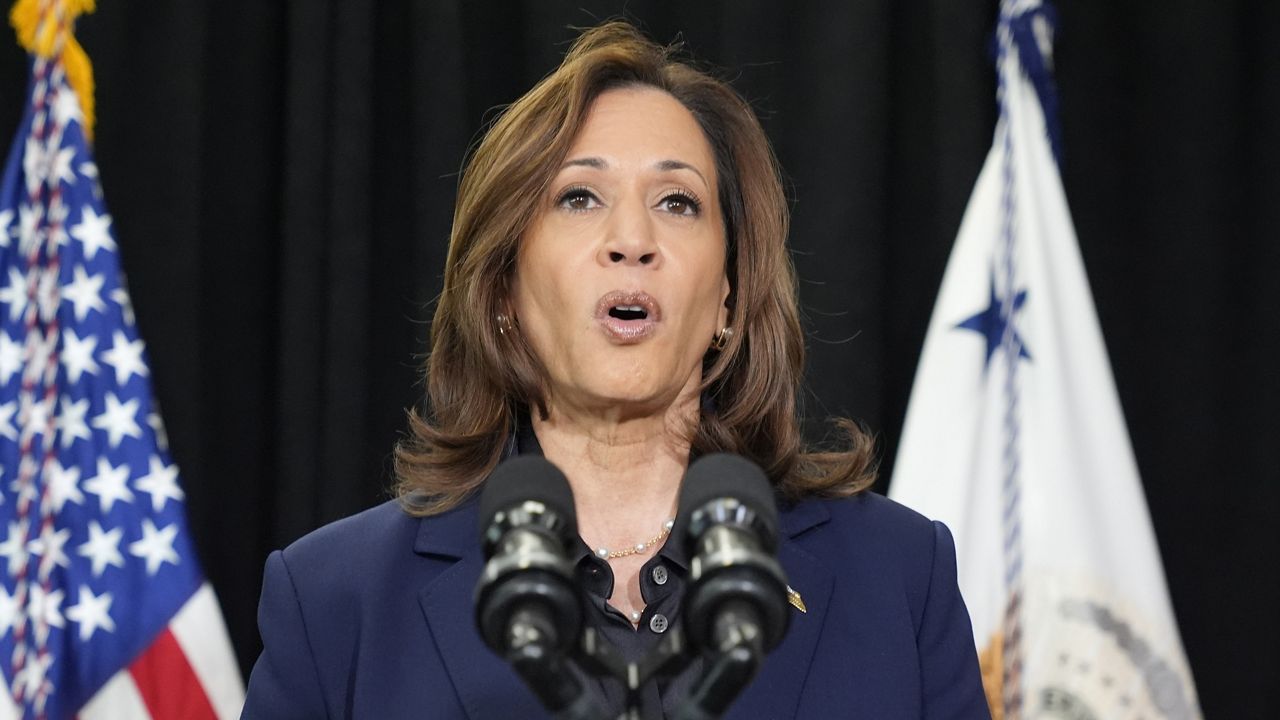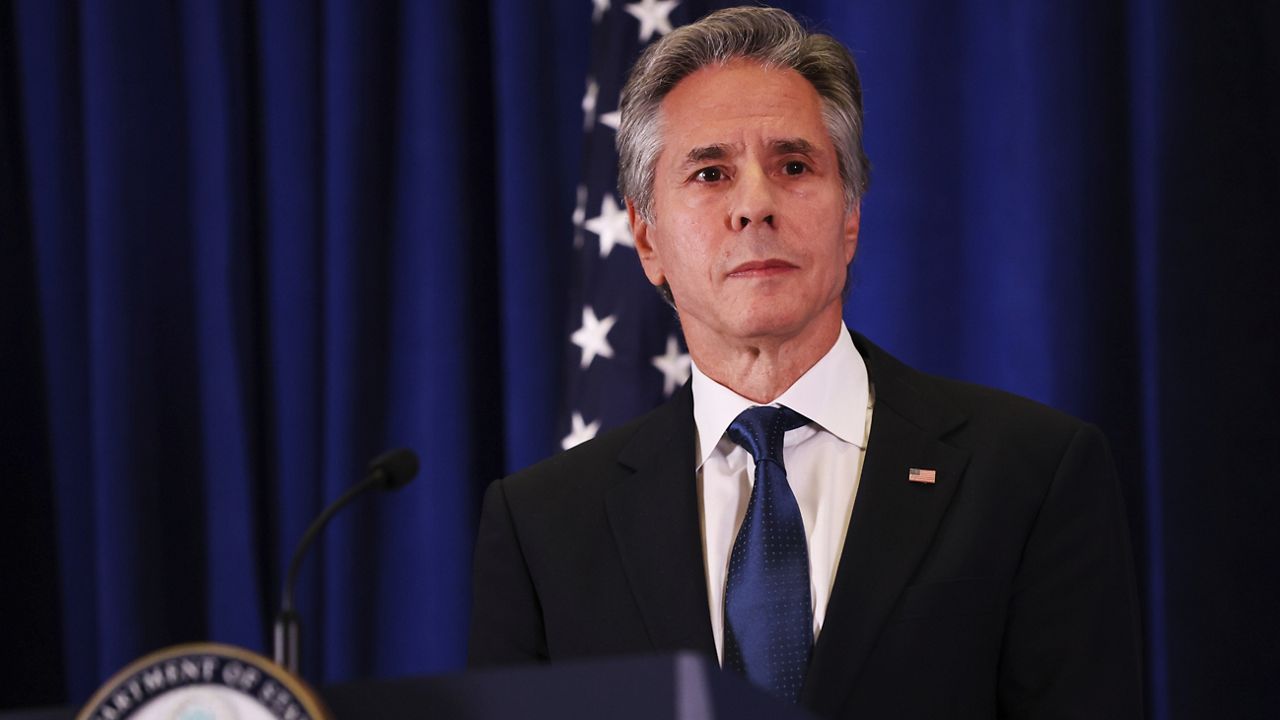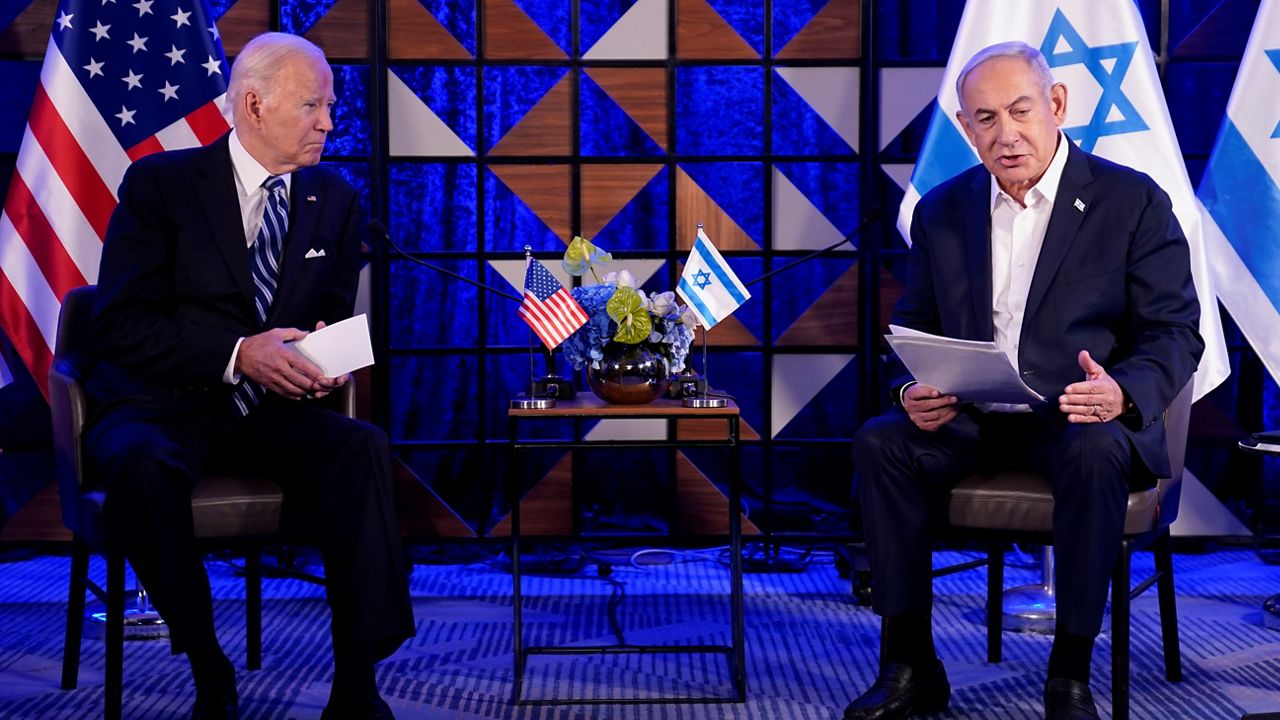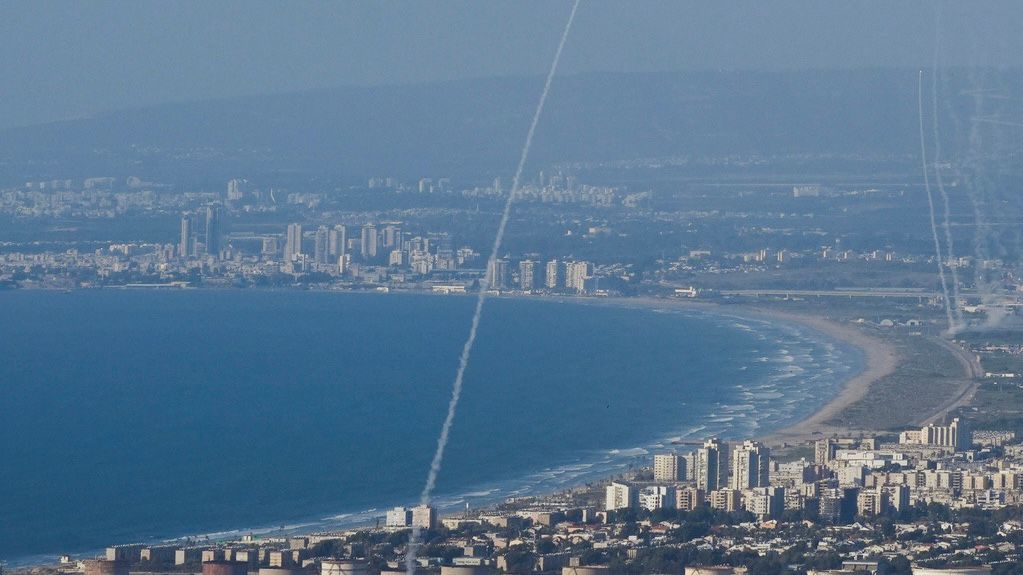Secretary of State Antony Blinken expressed frustration Wednesday at surprise escalations that he said threaten to derail efforts to broker a cease-fire between Israel and Hamas in Gaza.
He said the U.S. is still assessing the previous day's deadly pager explosions, linked to Israel, in Lebanon.
Blinken spoke in Egypt, where he traveled for talks on the Gaza cease-fire negotiations and U.S.-Egyptian relations.
The United States and international partners, including Egypt, are working to broker a cease-fire in the nearly year-old war between Israel and Hamas in Gaza, and to tamp down tensions as Israeli leaders threaten to step up military action against Hezbollah in Lebanon.
"Time and again" when the U.S. and other international mediators believe themselves to be making progress in a cease-fire deal for Israel's and Hamas's war in Gaza, "we've seen an event that makes the process more difficult, might derail it," Blinken said, speaking in answer to a question about the previous day's explosions in Lebanon.
Explosive attacks using personal pagers used by members of the Hezbollah militant group in Lebanon killed at least 12 people Tuesday, including a child. Israel has not publicly spoken on whether it was responsible.
Blinken spoke of Hamas' killing earlier this month of six of the several dozen hostages that Hamas-led militants have held in Gaza since capturing them Oct. 7, in the attack in Israel that launched the war.
At the time news came of the six hostages' killing, negotiators had been making progress on the timing and other details of a swap that would have freed hostages in exchange for a freeing of Palestinian prisoners in Israeli detention, Blinken said.
Blinken on Wednesday repeated administration statements that the U.S. was still gathering information on the circumstances of the pager attacks, and declined more specific comment on them.
Blinken spoke to reporters after talks with Egyptian President Abdel Fattah el-Sissi and Egyptian Foreign Minister Badr Abdelatty.
He also said the most dire need in the talks for a cease-fire and hostage release in Gaza was for both sides to show they actually wanted a deal.
"The most important thing in this moment is to see a demonstration of political will," Blinken said.
Israeli Prime Minister Benjamin Netanyahu has been accused of slow-rolling the talks because a deal could mean the collapse of his hardline coalition government, some members of which oppose any deal with Palestinians.
Blinken was speaking on his 10th trip to the Middle East since the war in Gaza began. The trip was billed in part as a chance to consult with Egypt on refining terms of a final proposal to present to Israel and Hamas.




